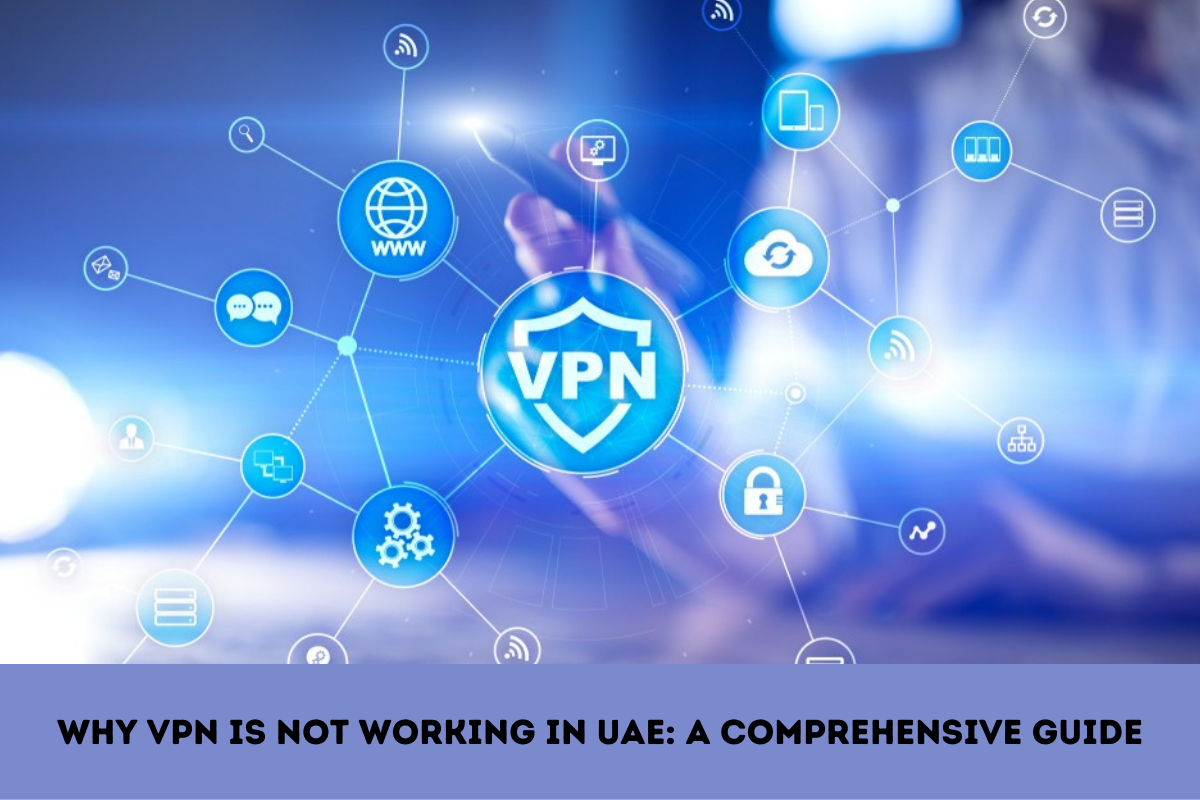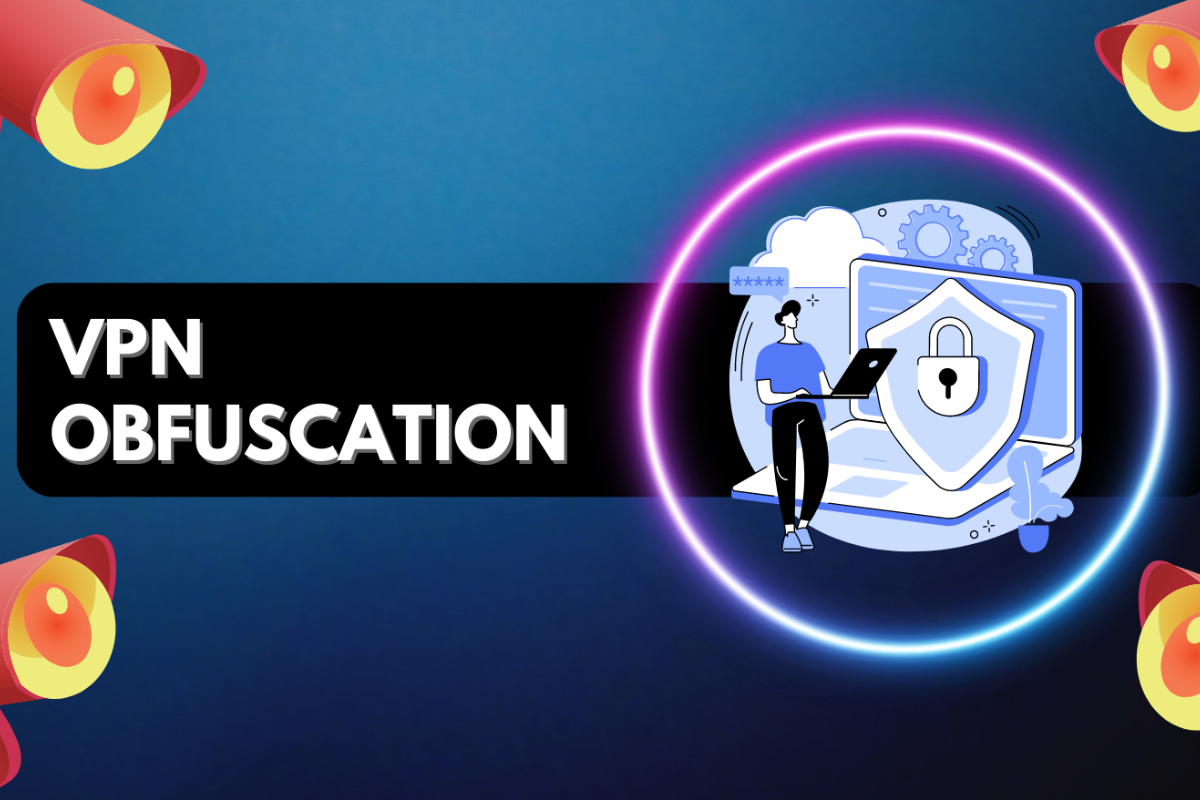Does the phrase “VPN not working in UAE” sound familiar? Have you faced issues using a Virtual Private Network (VPN) in the United Arab Emirates? This guide will help shed some light on the common stumbling blocks you may encounter and provide effective solutions to ensure your online security and freedom.
In an interconnected world where data is the new gold, VPNs have become a significant tool to protect online privacy. However, while these digital gateways are supposed to provide seamless and secure internet access, many users find their VPN not working in UAE. If you’re in this predicament, you are not alone. There are specific reasons behind these hitches, and the good news is there are ways to address them.
I. Introduction
II. Reasons Why Your VPN May Not be Working in UAE
III. The Problem with Free VPNs
IV. Choosing the Right VPN with Advanced Security Features
V. The Importance of Keeping Your VPN App Updated
XIII. Conclusion
Reasons Why Your VPN May Not Be Working in UAE
The UAE boasts rigorous online security measures and tight internet regulations, which can create challenges when using a VPN. Some of these challenges may include:
- Unsuitable servers: Not all VPN servers may work optimally in the UAE. Using a server that’s not well-suited to the region could be causing your connection issues.
- Stringent regulations: The UAE government has strict laws and regulations concerning online activities. This regulatory environment can cause certain VPNs to fail or perform sub-optimally.
- Blacklisted VPNs: It’s not uncommon for certain web pages or websites to blacklist specific VPNs. You may encounter connectivity issues if you’re trying to access a webpage that has blacklisted your VPN.
- ISP restrictions: Some Internet Service Providers (ISPs) in the UAE might actively block VPN connections, leading to VPNs not working as expected.
The Problem with Free VPNs
If you’re currently using a free VPN, that could be the root cause of your VPN connectivity issues. Here’s why:
- Unreliability: Free VPNs are infamous for their lack of reliability. They can disconnect without warning, leaving your online activities exposed.
- Limited server options: Free VPNs typically provide a limited number of servers. These servers might not be optimal for use in the UAE, causing a weak or non-existent connection.
- Slow speeds: Free VPNs often have more users than their servers handle, resulting in painfully slow connection speeds.
- Strict ISP policies: ISPs with rigorous procedures against VPN usage can easily detect and block free VPNs due to their well-known IP ranges.
- Poor security: Free VPNs aren’t known for their robust security measures. This lack of security might impact your VPN’s performance and expose you to potential online threats.
Consider investing in a premium VPN for a smoother, more secure internet experience in the UAE. Premium VPNs are more likely to offer reliable connections, numerous server options, faster speeds, and robust security features that bypass ISP restrictions and evade website blacklists.
Advanced Techniques to Troubleshoot VPN Connection Issues in UAE
You probably feel frustrated if your VPN is not working in UAE. But don’t fret. You can take several advanced methods and practical steps to rectify this issue and enhance your online experience.
1. Connecting to the Nearest VPN Server
Your first move should be to connect to the nearest VPN server. Doing so typically provides the fastest and most stable connection, which can be a godsend, particularly for those grappling with unstable VPN connections. Follow these simple steps:
Open your VPN application.
Look for a feature called ‘quick-connect’ or similar.
This feature determines the best server based on your location and automatically connects you to it.
If your VPN application doesn’t have this feature, manually select a server based in a country close to the UAE.
2. Changing the VPN Protocol
If you’re still experiencing issues, consider changing your VPN protocol. The VPN protocol can significantly influence your VPN’s performance and security level. Some ISPs in the UAE are known to block VPN traffic by protocol and port. Switching to modern and secure protocols like OpenVPN and WireGuard can provide a more secure online experience without compromising speed.
- Open your VPN application’s settings.
- Locate the section where you can change the protocol.
- Select a protocol such as OpenVPN or WireGuard.
- Save your changes and try reconnecting.
3. Using Obfuscation Mode
Obfuscation mode, also known as stealth mode, could be a game-changer. This feature can make VPN traffic appear like regular HTTPS traffic, making it less likely to be detected and blocked. This approach could be the key to your VPN working smoothly in UAE.
- Go to the settings of your VPN application.
- Search for a feature called obfuscation, stealth mode, or something similar.
- Enable this feature, save your changes, and attempt to connect again.
4. Changing DNS Servers
Your default DNS servers, usually assigned by your ISP, may not be reliable enough, leading to VPN connection issues. Switching to a more secure DNS server can dramatically improve your VPN’s performance. Here’s how:
- Go to Control Panel > Network and Internet > Network and Sharing Center > Change adapter settings on Windows.
- Right-click on your network, select ‘Properties’, then ‘Internet Protocol Version 4 (TCP/IPv4)’, and click ‘Properties’ again.
- Check ‘Use the following DNS server addresses’ and input the addresses of your new DNS server.
- Apply the changes and check your VPN connection.
Note: This step might be unnecessary if your VPN service provides exclusive DNS servers.
5. The Importance of a VPN Kill Switch
A VPN kill switch is a feature that cuts off all internet access if your VPN connection drops unexpectedly. This feature is particularly useful in regions like the UAE, where revealing your IP address and location can block websites. Ensure this feature is activated in your VPN application’s settings for an added layer of protection.
6. Disabling WebRTC in Your Web Browser
Lastly, modern web browsers support WebRTC, which, while useful, can leak your IP and location. This leak can lead to your VPN connection being detected and blocked in the UAE. Disabling WebRTC is simple:
- For browsers like Firefox, type ‘about config’ in the address bar, and search for ‘media. peer connection. enabled’, and set its value to ‘False’.
- You can install an extension like ‘WebRTC Leak Prevent’ for Google Chrome to turn off this feature.
By implementing these advanced techniques, you should be well-equipped to solve any issues with your VPN connection in the UAE, ensuring a smoother, safer, and more enjoyable internet experience.
The Importance of Keeping Your VPN App Updated
Keeping your VPN app updated is more crucial than you might realize. Regular updates to your VPN application can offer various benefits and improvements, which many users often overlook. Here’s why it’s essential:
- New Features: VPN providers continuously evolve and add new application features. These features can enhance your VPN’s functionality, offering a better, smoother, and more versatile user experience.
- Security Enhancements: Online security is an ever-changing field, with new threats emerging daily. VPN providers regularly update their security protocols and features to counter these threats effectively. This means that by keeping your VPN app updated, you can always enjoy the highest level of online security and privacy.
- Bug Fixes: Like any software, VPN applications may contain bugs that can hinder performance or pose security risks. Regular updates often include bug fixes, ensuring your VPN app performs optimally without any issues.
- Performance Improvements: Updates can also bring about performance enhancements. They often optimize the app’s speed, stability, and compatibility with your device’s operating system, leading to a better user experience.
- Prevent Connection Issues: If your VPN is not working in UAE, an outdated VPN client could be the culprit. Regular updates often address and fix connection problems, ensuring you can always access the content you want.
- Stay Ahead of ISP Blocks: ISPs in countries like UAE are always looking for VPN traffic. They often implement new ways to detect and block it. VPN providers counter this by updating their apps to be one step ahead of these new detection methods.
Regular updates to your VPN application are essential for maintaining optimal functionality, security, and performance. Make it a habit to check for and install updates as soon as they’re available to ensure the most secure and smooth VPN experience in the UAE.
Conclusion
In conclusion, if you’re encountering issues with your VPN not working in UAE, it’s crucial to understand that there are solutions. Avoid free VPNs, update your VPN app regularly, connect to the nearest server, change the VPN protocol, and enable obfuscation mode. Moreover, tweak your DNS settings, use a VPN kill switch, and disable WebRTC in your web browser. A reliable VPN service can significantly enhance your online experience in the UAE, and premium services like NordVPN and Private Internet Access come highly recommended. Embrace the art of navigating the digital world securely, regardless of where you are.



